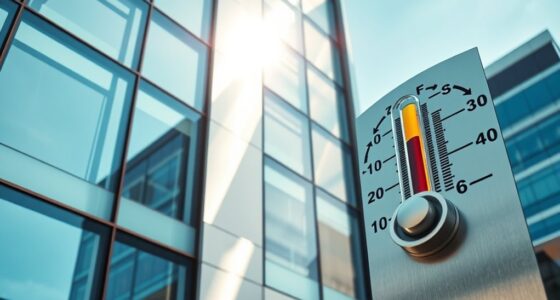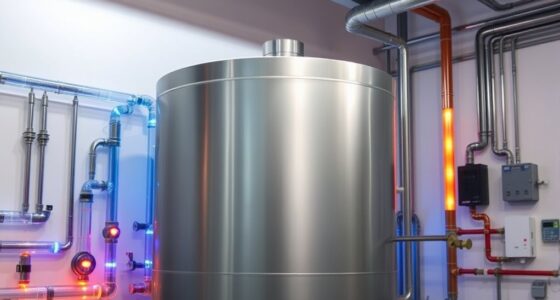Can you excel in mastering the transfer of thermal energy in heat pumps?
Get ready to test your knowledge and dive into the world of heat pump technology.
In this quiz, we’ll explore the ins and outs of how thermal energy is transferred in heat pumps.
From understanding the role of refrigerant to maximizing energy transfer efficiency, we’ll cover it all.

So, let’s get started and see if you’re up to the task!
Key Takeaways
- Optimizing energy transfer efficiency is crucial in heat pump systems.
- The properties and efficiency of the refrigerant impact system performance.
- Refrigerant leaks can negatively affect system efficiency and environmental impact.
- Prioritizing environmentally-friendly refrigerants with lower global warming potential is essential.
The Basics of Thermal Energy Transfer in Heat Pumps
We all know that thermal energy transfer is a fundamental concept in understanding how heat pumps work.
When it comes to understanding heat pump basics, optimizing energy transfer efficiency is key.
Heat pumps operate by transferring thermal energy from a lower temperature source to a higher temperature sink, using a small amount of energy.

This process is achieved through the use of a refrigerant, which is responsible for absorbing heat from the source and releasing it at the sink.
To optimize energy transfer efficiency, it’s important to consider factors such as the choice of refrigerant, the design of the heat exchangers, and the control strategies employed.
Understanding the Role of Refrigerant in Heat Pump Systems
When it comes to heat pump systems, understanding the role of refrigerant is crucial. The properties and efficiency of the refrigerant used in a heat pump can greatly impact its performance.
Additionally, refrigerant leaks can have a significant negative effect on both the efficiency and environmental impact of the system.

Looking to the future, advancements in refrigerant technology hold the potential for even greater efficiency and sustainability in heat pump systems.
Refrigerant Properties and Efficiency
Refrigerant properties play a crucial role in determining the efficiency of heat pump systems. The efficiency of a heat pump is directly influenced by the efficiency of the refrigerant used. Different refrigerants have varying thermodynamic properties, such as specific heat capacity, latent heat of vaporization, and thermal conductivity. These properties determine how effectively the refrigerant can absorb and release heat during the heat pump cycle.
Refrigerant efficiency is also impacted by the presence of refrigerant leaks. Leaks can result in a loss of refrigerant, which can reduce the cooling or heating capacity of the heat pump. Additionally, refrigerant leaks can contribute to environmental pollution and pose safety risks. Regular maintenance and inspections are necessary to detect and repair any leaks promptly.
Understanding the properties of refrigerants and the impact of refrigerant leaks is vital for maximizing the efficiency and performance of heat pump systems. In the next section, we’ll delve further into the consequences of refrigerant leaks and how they can affect the overall operation of a heat pump system.

Impact of Refrigerant Leaks
How do refrigerant leaks affect the performance and efficiency of heat pump systems? Refrigerant leaks can significantly impact the performance and efficiency of heat pump systems. When refrigerant leaks occur, the amount of refrigerant in the system decreases, causing a decrease in the system’s cooling or heating capacity. This can lead to reduced comfort levels and increased energy consumption. In addition, refrigerant leaks can also have environmental consequences. Refrigerants used in heat pump systems are potent greenhouse gases that can contribute to global warming if released into the atmosphere. Therefore, it is crucial to prevent refrigerant leakage to ensure optimal system performance, efficiency, and minimize the environmental impact. Regular maintenance, proper installation, and regular inspections are essential in preventing refrigerant leaks and promoting the longevity and reliability of heat pump systems.
| Impacts of Refrigerant Leaks | |
|---|---|
| Decreased cooling or heating capacity | Reduced comfort levels and increased energy consumption |
| Environmental consequences | Release of potent greenhouse gases contributing to global warming |
| Importance of refrigerant leakage prevention | Regular maintenance, proper installation, and regular inspections |
Future of Refrigerant Technology
We are excited to explore the future of refrigerant technology and understand its role in heat pump systems.
As we look ahead, it’s clear that refrigerants will play a crucial role in the development and advancement of heat pump technology. The future applications of refrigerants in heat pump systems are promising, with the potential for increased efficiency and improved performance.
However, it’s important to consider the environmental impact of these refrigerants. As we strive to serve others and meet their needs, it’s essential that we prioritize the use of environmentally-friendly refrigerants that have a lower global warming potential and ozone depletion potential. By doing so, we can ensure that heat pump systems not only provide efficient heating and cooling, but also contribute to a sustainable and eco-friendly future.

Now, let’s delve into the key principles of heat transfer in heat pump technology.
Key Principles of Heat Transfer in Heat Pump Technology
Our understanding of the key principles of heat transfer in heat pump technology is crucial for effectively implementing and optimizing its performance.
When it comes to heat pump technology, there are several key principles that we must consider:
-
Refrigerant Selection: Choosing the right refrigerant is essential for maximizing heat pump performance. Factors such as energy efficiency, environmental impact, and safety should be taken into account.

-
Heat Transfer Mechanisms: Heat pumps utilize different heat transfer mechanisms, such as conduction, convection, and radiation, to transfer thermal energy from one location to another.
-
Thermodynamics: The principles of thermodynamics play a vital role in understanding heat pump operation. Concepts like entropy, enthalpy, and heat transfer coefficients are fundamental to heat pump performance analysis.
-
System Design: Proper system design, including the sizing of components and the configuration of the heat transfer loop, is critical for achieving optimal heat pump performance.
-
Control Strategies: Implementing effective control strategies, such as variable speed operation and adaptive control algorithms, can further enhance heat pump performance and efficiency.

Exploring the Efficiency of Thermal Energy Transfer in Heat Pumps
When exploring the efficiency of thermal energy transfer in heat pumps, there are several factors that need to be considered.
These factors include:
- The design and size of the heat exchanger
- The type and condition of the refrigerant used
- The overall system setup
Factors Affecting Efficiency
Let’s delve into the factors that impact the efficiency of thermal energy transfer in heat pumps. Here are some key considerations to maximize efficiency and optimize energy transfer processes:
-
Insulation: Proper insulation helps reduce heat loss and ensures more efficient energy transfer.

-
Temperature difference: The greater the temperature difference between the heat source and the heat sink, the more efficient the energy transfer.
-
Refrigerant properties: The choice of refrigerant can significantly impact the efficiency of a heat pump. High-performance refrigerants with favorable thermodynamic properties can enhance energy transfer.
-
System maintenance: Regular maintenance ensures that the heat pump operates at its peak efficiency, reducing energy wastage and maximizing performance.
-
Sizing and design: Proper sizing and design of the heat pump system are crucial for efficient energy transfer. A well-designed system takes into account factors such as load requirements, climate conditions, and equipment specifications.
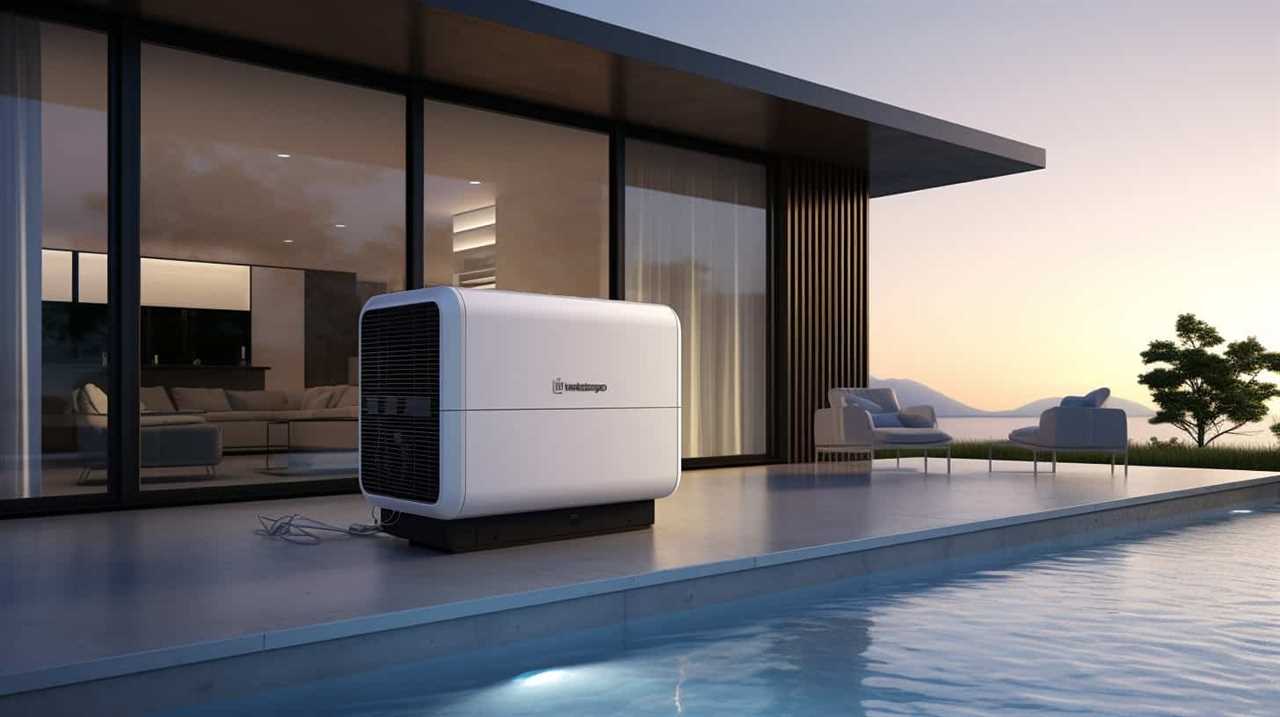
Improving Thermal Energy Transfer
To enhance thermal energy transfer in heat pumps, we can optimize the efficiency by implementing various strategies.
One key aspect to consider is improving insulation efficiency. By ensuring that the heat pump system is properly insulated, we can minimize heat loss and maximize the amount of thermal energy transferred. This can be achieved by using high-quality insulation materials and sealing any potential air leaks.
Another important strategy is optimizing heat exchange. This involves designing the heat exchangers in a way that allows for efficient transfer of thermal energy between the heat source and the heat sink. This can be achieved through the use of appropriate materials, such as copper or aluminum, and by maximizing the surface area available for heat exchange.
By implementing these strategies, we can significantly improve the overall efficiency of thermal energy transfer in heat pumps.
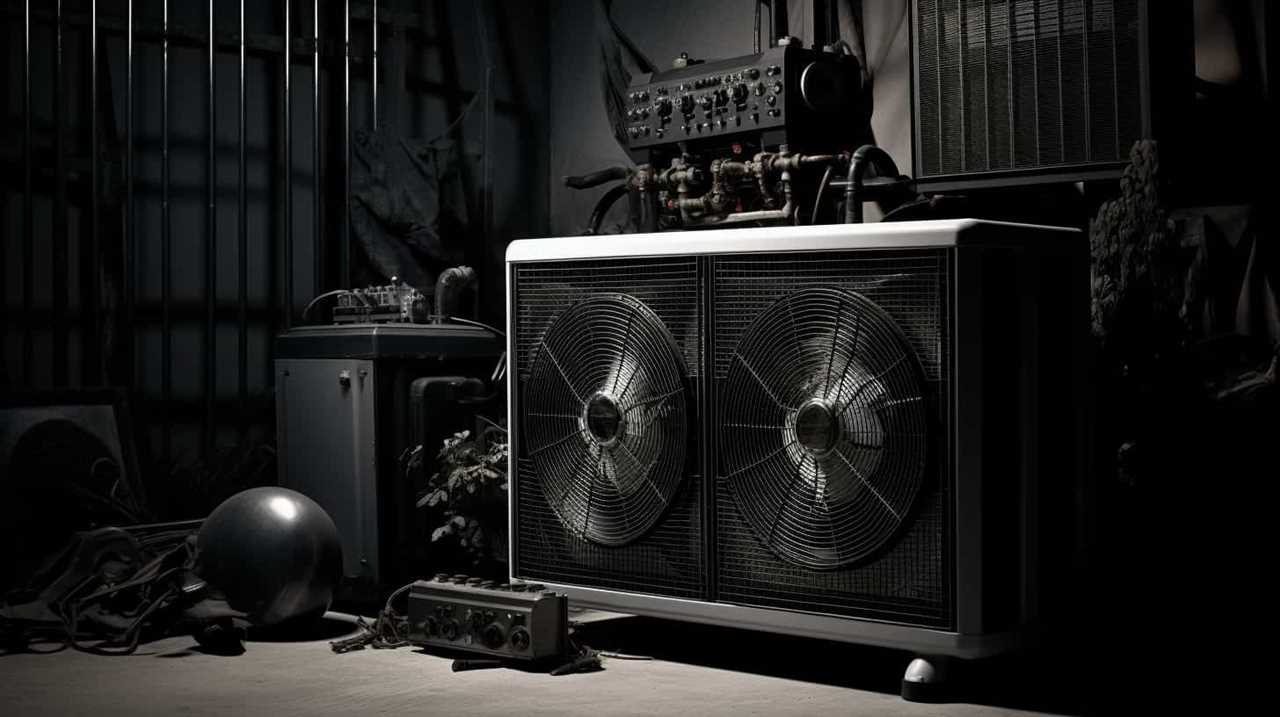
Transitioning into the next section, let’s now explore the common types of heat pumps and their energy transfer processes.
Common Types of Heat Pumps and Their Energy Transfer Processes
We’ll explore the different types of heat pumps and how they transfer energy. Heat pumps are devices that transfer thermal energy from one location to another, using a small amount of external energy. Here are some common types of heat pumps and their energy transfer processes:
- Air source heat pumps: These extract heat from the outside air and transfer it indoors or vice versa.
- Ground source heat pumps: These use the stable temperature of the ground to transfer heat.
- Water source heat pumps: These extract heat from a water source, such as a lake or a well.
- Absorption heat pumps: These use a heat source, like natural gas or waste heat, to drive the energy transfer process.
- Geothermal heat pumps: These utilize the constant temperature of the earth to provide heating and cooling.
Understanding these different types of heat pumps and their energy transfer processes is essential to optimizing the efficiency and effectiveness of heat pump systems.
In the next section, we’ll delve into the factors that can affect thermal energy transfer in heat pump systems.

Factors Affecting Thermal Energy Transfer in Heat Pump Systems
We frequently encounter various factors that affect thermal energy transfer in heat pump systems. Two important factors to consider are thermal conductivity and insulation materials. Thermal conductivity refers to the ability of a material to conduct heat. Materials with high thermal conductivity, such as metals, allow heat to transfer quickly, while materials with low thermal conductivity, such as insulation materials, resist heat transfer. Insulation materials play a crucial role in heat pump systems by reducing heat loss and improving efficiency. Common insulation materials include fiberglass, foam board, and reflective insulation. These materials are designed to trap air pockets, which helps slow down the transfer of heat. By carefully selecting materials with high thermal conductivity and using effective insulation, we can optimize thermal energy transfer in heat pump systems and ensure better performance and energy efficiency.
| Factors | Effect on Thermal Energy Transfer |
|---|---|
| Thermal conductivity | Determines rate of heat transfer |
| Insulation materials | Reduces heat loss |
Maximizing Energy Transfer Efficiency in Heat Pump Operations
By optimizing our heat pump operations, we can maximize energy transfer efficiency. Here are some key ways to achieve this:
-
Regular maintenance: Keeping the heat pump clean and well-maintained ensures optimal performance and energy efficiency.
-
Proper sizing: Installing a correctly sized heat pump ensures that it operates efficiently and effectively, maximizing energy savings.
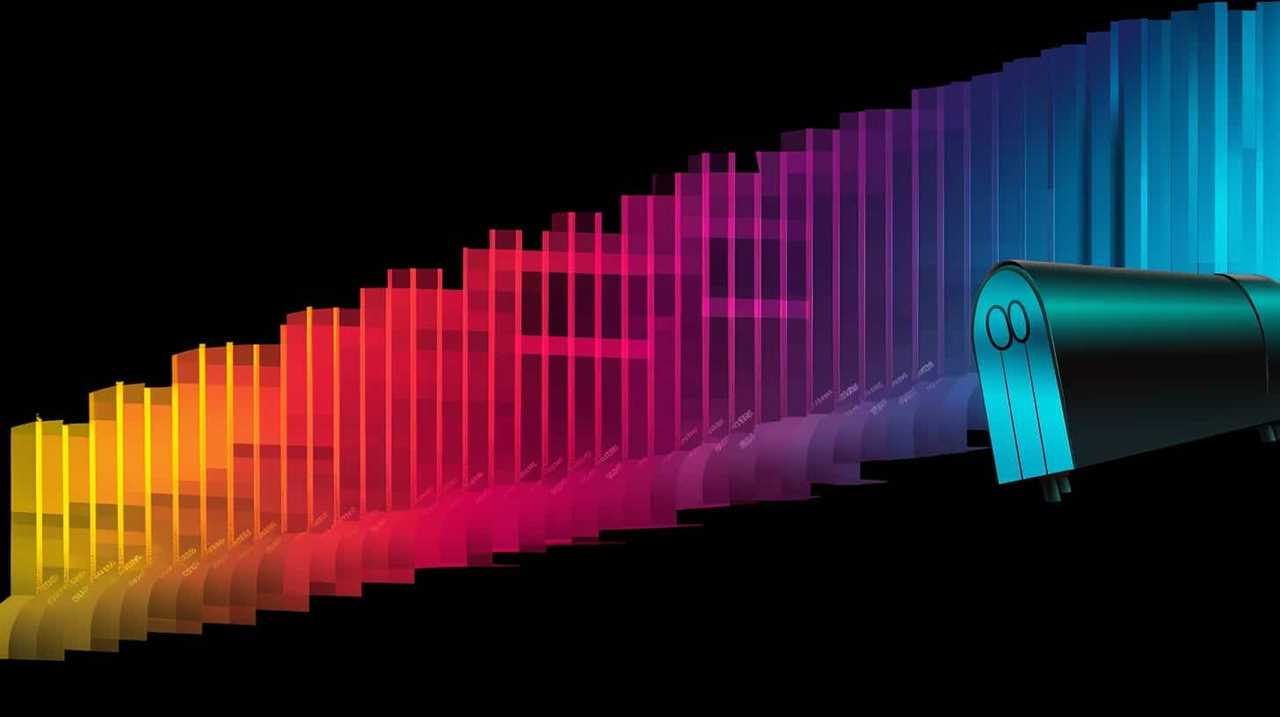
-
Optimal temperature settings: Setting the appropriate temperatures for heating and cooling helps to minimize energy consumption without sacrificing comfort.
-
Insulation: Ensuring proper insulation in the building reduces heat loss and enhances the overall efficiency of the heat pump.
-
Smart controls: Utilizing smart thermostats and control systems allows for better management of energy usage, optimizing heat pump performance.
Troubleshooting Thermal Energy Transfer Issues in Heat Pumps
To troubleshoot thermal energy transfer issues in heat pumps, we can perform a series of diagnostic tests and inspections. By identifying and resolving common problems, we can optimize energy efficiency and ensure the smooth operation of heat pumps.

One common issue is inadequate airflow, which can result in reduced heat transfer and increased energy consumption. To address this, we can check and clean air filters, inspect ductwork for leaks or blockages, and ensure proper fan operation.
Another common problem is refrigerant leakage, which can lead to inefficient heat transfer. By conducting leak detection tests and repairing any leaks found, we can improve energy efficiency and prevent further damage to the system.
Additionally, issues with the thermostat, electrical connections, or sensors can also impact thermal energy transfer. Regular maintenance and troubleshooting can help identify and resolve these issues, improving overall heat pump performance.
Advancements in Thermal Energy Transfer Technology for Heat Pumps
Advancements in thermal energy transfer technology for heat pumps have revolutionized their efficiency and performance. These advancements have opened up new possibilities for future developments in the field.

Here are some key advancements in thermal energy transfer technology for heat pumps:
-
Variable Speed Compressors: These allow heat pumps to adjust their speed based on the heating or cooling needs, resulting in improved energy efficiency and comfort.
-
Enhanced Heat Exchangers: New designs and materials have increased the heat transfer capabilities of heat exchangers, improving overall system performance.
-
Smart Controls: Advanced control systems can optimize the operation of heat pumps, ensuring they operate at peak efficiency.

-
Refrigerant Innovations: The development of new refrigerants with better thermal properties has led to higher efficiency and reduced environmental impact.
-
Integration with Renewable Energy Sources: Heat pumps can now be seamlessly integrated with renewable energy sources like solar panels, further reducing carbon emissions.
These advancements in thermal energy transfer technology for heat pumps pave the way for even more efficient and sustainable heating and cooling solutions in the future.
Frequently Asked Questions
How Much Does a Typical Heat Pump System Cost?
A typical heat pump system’s cost can vary depending on factors such as size, brand, and installation requirements. When considering cost, it is important to compare energy efficiency ratings to ensure long-term savings on utility bills.

What Are the Potential Health and Safety Risks Associated With Heat Pumps?
Potential health risks and safety hazards are important factors to consider when dealing with heat pumps. It is crucial to be aware of the potential dangers associated with these systems to ensure the well-being of both users and technicians.
Are There Any Government Incentives or Tax Credits Available for Installing a Heat Pump System?
Yes, there are government incentives and tax credits available for installing a heat pump system. These incentives provide financial benefits, making it more affordable for individuals to invest in energy-efficient heating and cooling solutions.
Can a Heat Pump System Be Used for Both Heating and Cooling Purposes?
Yes, a heat pump system can be used for both heating and cooling purposes. It offers efficient thermal energy transfer, resulting in energy savings. This makes it a versatile and cost-effective option for maintaining comfortable indoor temperatures throughout the year.
Are There Any Maintenance or Regular Servicing Requirements for Heat Pump Systems?
There are maintenance and regular servicing requirements for heat pump systems. These include cleaning or replacing air filters, inspecting and cleaning coils, checking refrigerant levels, and ensuring proper airflow.

Conclusion
In conclusion, understanding the principles and efficiency of thermal energy transfer in heat pumps is crucial for maximizing their performance. By comprehending the role of refrigerant, exploring different heat transfer processes, and considering factors that affect energy transfer, we can ensure optimal operation.
Furthermore, keeping up with advancements in thermal energy transfer technology will contribute to the continued improvement of heat pump systems. By applying these principles and techniques, we can achieve efficient and reliable heat pump operations.


